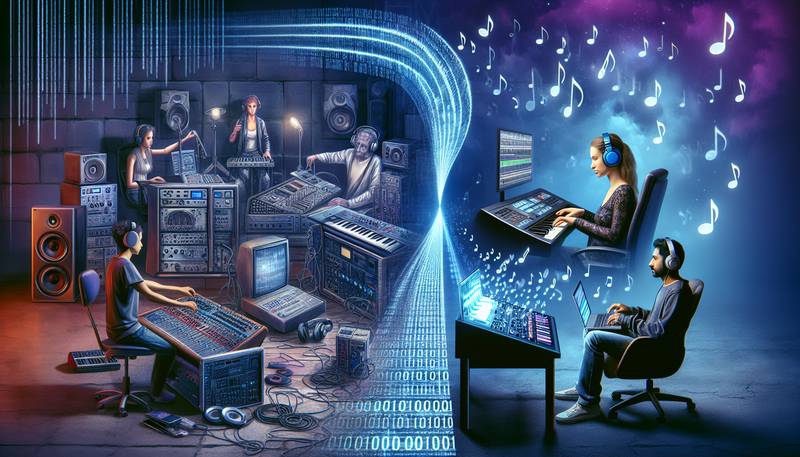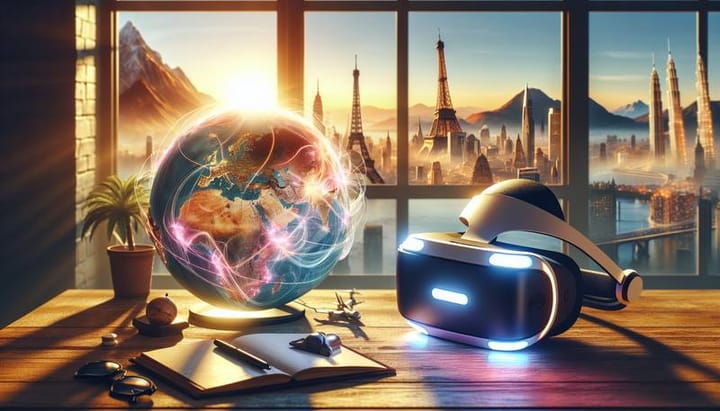Tech in the Music Industry: From Creation to Consumption

The Sound of Technology
The music industry has always been a thriving and dynamic sector, and with the advent of technology, it has only become more so. From the days of vinyl records to the era of digital downloads and streaming, technology has played a critical role in both the creation and consumption of music. As we look at the impact of technology on the music industry, one thing is certain: the future of music is tech-driven.
The Birth of Digital Music Creation
Music production has come a long way since the days of analog recording. In the past, artists and producers had to rely on expensive studio equipment and hours of work to create a single track. Today, with the help of digital audio workstations (DAWs), musicians can produce, mix, and master their music from the comfort of their own homes. DAWs like Pro Tools, Ableton Live, and Logic Pro have revolutionized music production, making it more accessible and affordable for aspiring artists.
The future of music is tech-driven.
The Power of Music Distribution
Gone are the days of artists needing a record label to distribute their music. With the rise of digital distribution platforms like Spotify, Apple Music, and SoundCloud, musicians can now share their music with the world with just a few clicks. These platforms have also made it easier for artists to reach new audiences and build their fan base.
The Rise of Streaming Services
Streaming services have quickly become the preferred way for consumers to listen to music. According to a report by the Recording Industry Association of America (RIAA), streaming accounted for 80% of the music industry's revenue in 2019. Platforms like Spotify and Apple Music offer listeners access to millions of songs for a monthly subscription fee, while SoundCloud and YouTube provide a space for independent artists to share their music for free.
The Impact of Streaming on Music Consumption
Streaming has not only changed the way we listen to music but also how we discover new artists. With personalized playlists and algorithms, streaming services have made it easier for consumers to find new music that fits their taste. This has opened up opportunities for lesser-known artists to gain exposure and build a following without the need for traditional marketing and promotion.
The Role of Social Media in the Music Industry
Social media has also played a significant role in the music industry's tech revolution. Platforms like Instagram, Twitter, and TikTok have provided artists with a direct line of communication with their fans. Social media has become a powerful tool for musicians to promote their music, connect with their audience, and grow their brand.
The Power of Viral Marketing
With the help of social media, artists can now reach millions of people with just one viral post. TikTok, in particular, has become a popular platform for music promotion, with artists like Lil Nas X and Doja Cat gaining fame through viral challenges and dances set to their music. Social media has also made it easier for fans to show their support for their favorite artists, with the ability to share music and concert experiences online.
The Future of Music Marketing
As technology continues to advance, the future of music marketing is sure to be shaped by new platforms and tools. Virtual reality and augmented reality experiences, for example, could offer new ways for artists to engage with their fans and promote their music. The possibilities are endless, and the music industry is poised to take advantage of the latest tech innovations.
The Evolution of Live Music
Technology has also had a significant impact on live music experiences. From the lighting and sound systems used in concerts to the streaming of live performances, tech has transformed the way we experience live music. Virtual concerts, in particular, have gained popularity in recent years, with artists like Travis Scott and Marshmello hosting virtual performances on platforms like Fortnite and Minecraft.
The Future of Live Music
The future of live music is sure to be influenced by technology, with advancements in virtual and augmented reality offering new possibilities for immersive concert experiences. As technology continues to evolve, we can expect to see more innovative ways for artists to connect with their fans through live performances.
Conclusion
The music industry has come a long way since the days of vinyl records, and technology has been at the forefront of this evolution. From the creation of music to its consumption, tech has transformed the way we experience and interact with music. As we look towards the future, one thing is certain: the music industry will continue to be shaped by the latest tech innovations.


